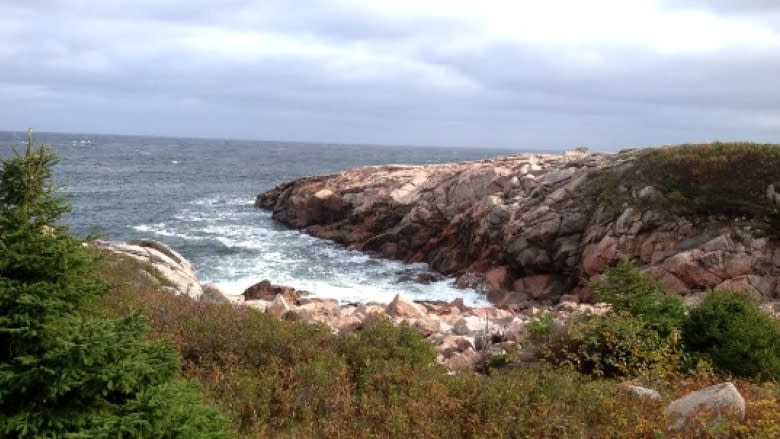Cape Breton Highlands war memorial opposed by new group
A new group is trying to stop the construction of a controversial 10-storey war memorial proposed for Cape Breton Highlands National Park.
The plan is to build the war memorial on a nearly one-hectare piece of land in Green Cove, N.S. The public has until Sunday to respond to Parks Canada's detailed impact analysis of the project.
A citizens group called Friends of Green Cove that launched on Tuesday is calling for two more months of consultation and for Parks Canada to hold a public meeting where people can state their views. It's made up of scientists, activists and people who live in the Highlands.
"It's vulgar and ostentatious. It doesn't do anything for veterans or definitely not for the people who are dead," says Valerie Bird, a 93-year-old Second World War veteran.
The group says it will spoil an area that is supposed to be protected from development.
"The proposed Mother Canada complex will destroy the site beyond repair," says Sean Howard, an adjunct professor of political science at Cape Breton University.
"It will be a huge scientific loss to the whole Canadian scientific community if this project goes ahead."
The statue by the Never Forgotten National Memorial Foundation, dubbed Mother Canada, would be 30 metres high and feature a woman with her arms outstretched toward Europe. The plan also includes parking for 300 vehicles, a restaurant, souvenir shop and an interpretive centre.
'They'll do a lot of damage'
Howard said the complex isn't compatible with Parks Canada's mandate to preserve and protect the land for future generations. He believes it will deter visitors who are attracted to the region and the Cabot Trail for its geography and natural beauty.
"It will go right over the most precious part of the geological formation," he says. "There's nothing like it in national parks before. They'll do a lot of damage by Christmas, unless we stand up now."
Lewis MacKenzie, a retired major-general, is one of the prominent backers of the project. He said the location is ideal because it may have been one of the last parts of Canada seen by people leaving for the First World War and the Second World War, and one of the first seen upon their return.
"The design, when you see it, is extremely attractive," he said. "It's extremely welcoming not only to the souls of those interred abroad, but also for new Canadians. If it's a spot for reflection, I can't think of a better one."
But Howard said there are other sites in Canada where people can pay their respects.
"All other memorials around the country pay homage to not just to the people from the locality that died but by extension to all those that gave their lives in all the wars," he said. "There's no commemorative gap that needs to be filled."
The Never Forgotten National Memorial Foundation, which proposed the monument, intends to raise $25 million for the project through corporate and private donations.



